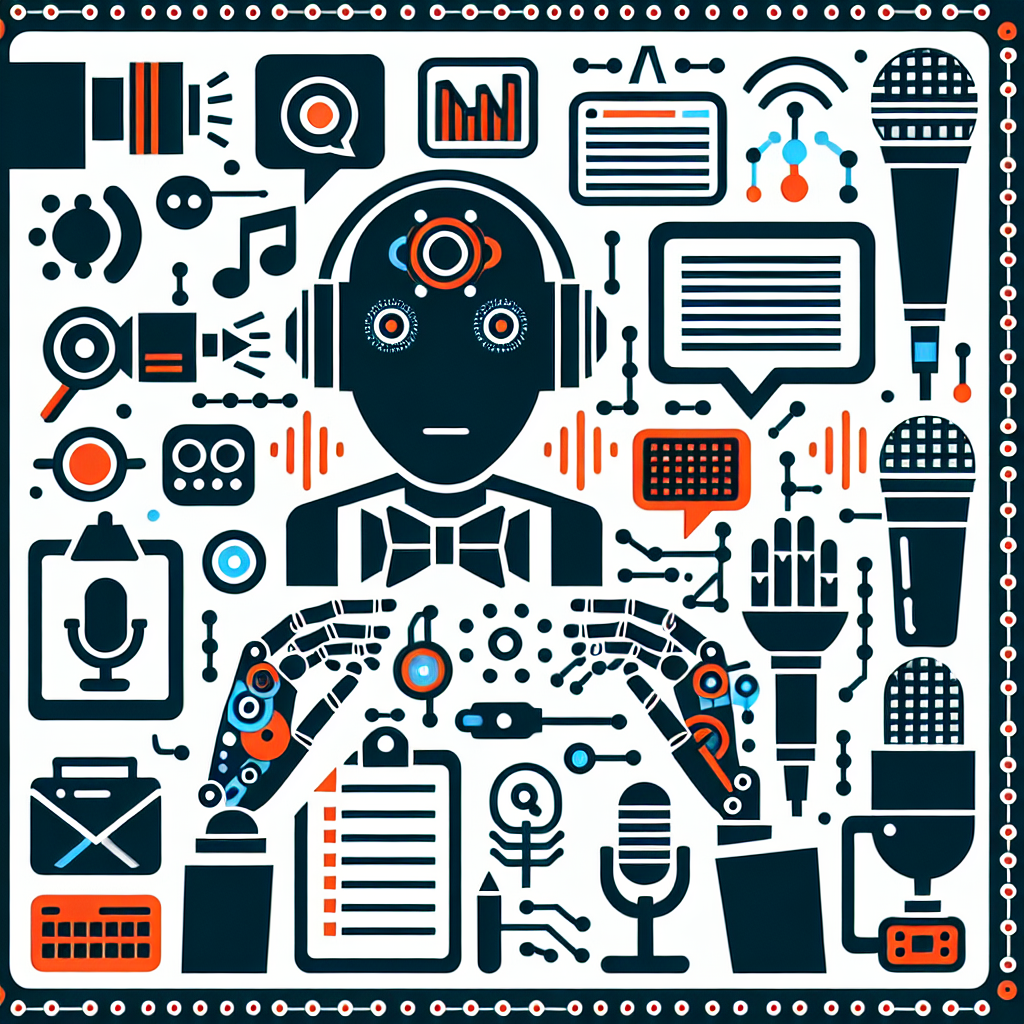Artificial Intelligence (AI) has made significant advancements in various industries, including journalism. AI journalism, also known as automated journalism, is the use of AI technologies to generate news articles, reports, and other forms of content. One of the most exciting applications of AI journalism is automated interviews and question-and-answer (Q&A) sessions.
Automated interviews and Q&A sessions involve using AI algorithms to conduct interviews with subjects and generate responses to questions. This technology has the potential to revolutionize the way journalists gather information, conduct interviews, and create content. In this article, we will explore the potential of AI journalism in the context of automated interviews and Q&A.
1. How AI Journalism Works
AI journalism works by leveraging natural language processing (NLP) and machine learning algorithms to analyze and interpret vast amounts of data. These algorithms can understand human language, identify patterns, and generate coherent responses. In the context of automated interviews and Q&A, AI algorithms can be trained to conduct interviews with subjects, generate responses to questions, and even engage in conversations with users.
2. Benefits of Automated Interviews and Q&A
Automated interviews and Q&A offer several benefits for journalists and news organizations. First and foremost, AI journalism can save time and resources by automating the interview process. Journalists can use AI algorithms to conduct interviews with subjects remotely, without the need for face-to-face interactions. This can be particularly useful in situations where in-person interviews are not possible or practical.
Additionally, AI journalism can help journalists gather information more efficiently. AI algorithms can process vast amounts of data quickly and extract relevant insights. This can help journalists uncover new story angles, identify trends, and generate unique content.
Furthermore, automated interviews and Q&A can enhance the quality and accuracy of news reporting. AI algorithms can analyze responses from subjects and fact-check information in real-time. This can help journalists verify the accuracy of information and avoid errors in reporting.
3. Challenges and Limitations
While automated interviews and Q&A hold great promise, there are also challenges and limitations to consider. One of the main challenges is the potential for bias in AI algorithms. AI algorithms are trained on existing data, which can contain biases and inaccuracies. This can lead to biased or inaccurate responses in automated interviews and Q&A sessions.
Another challenge is the lack of human empathy and intuition in AI algorithms. While AI algorithms can generate coherent responses, they may lack the emotional intelligence and empathy that humans bring to interviews and conversations. This can make it difficult for AI algorithms to engage with subjects in a meaningful way.
Furthermore, AI journalism raises ethical concerns around privacy and consent. Automated interviews and Q&A sessions involve collecting and processing personal data from subjects. Journalists and news organizations must ensure that they have the appropriate consent and safeguards in place to protect the privacy of subjects.
4. Future Trends and Opportunities
Despite the challenges and limitations, the future of AI journalism looks promising. As AI technologies continue to advance, we can expect to see more sophisticated and intelligent algorithms for automated interviews and Q&A. This could lead to more engaging and interactive experiences for users, as well as more accurate and insightful reporting.
Furthermore, AI journalism can open up new opportunities for news organizations to reach wider audiences. Automated interviews and Q&A sessions can be customized and tailored to meet the needs and preferences of different audiences. This can help news organizations attract and retain readers, viewers, and subscribers.
5. FAQs
Q: Are AI algorithms capable of conducting interviews with subjects?
A: Yes, AI algorithms can be trained to conduct interviews with subjects and generate responses to questions. These algorithms can analyze responses from subjects and generate coherent and relevant content.
Q: How accurate are AI algorithms in generating responses to questions?
A: AI algorithms can be highly accurate in generating responses to questions. However, there is always a risk of bias or inaccuracies in AI-generated content. Journalists and news organizations should exercise caution and verify the accuracy of information.
Q: What are the ethical considerations of using AI journalism for automated interviews and Q&A?
A: Ethical considerations include privacy and consent, bias in AI algorithms, and the lack of human empathy and intuition in automated interviews. Journalists and news organizations must ensure that they have the appropriate safeguards in place to protect the privacy of subjects and avoid bias in reporting.
In conclusion, AI journalism has the potential to revolutionize the way journalists gather information, conduct interviews, and create content. Automated interviews and Q&A offer several benefits, including time and resource savings, enhanced information gathering, and improved accuracy in reporting. While there are challenges and limitations to consider, the future of AI journalism looks promising. As AI technologies continue to advance, we can expect to see more sophisticated and intelligent algorithms for automated interviews and Q&A. This technology has the potential to reshape the media landscape and create new opportunities for news organizations to engage with audiences in innovative ways.

